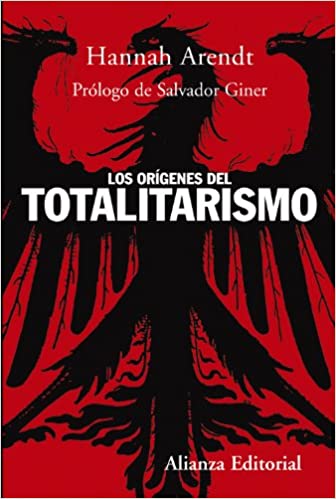When it is pointed out that the revolution will be feminist or not, the figure of Hannah Arendt It stands with the intensity of an essential role. Mainly locating us in the future of a 20th century, a paradigm of the sinister transformative power of totalitarianisms for any future era. Even more so now that we find ourselves immersed in a globalization that does not exactly appear as a solution to any evil...
Surely, at any other time Arendt would have given himself over to philosophy. But coincidences end up pointing to causality when someone like Hannah went on a mission for her bibliography. A great library that ended up summarizing philosophy and politics as a whole. Or at least as parallel lines of an imperishable work.
Following the path of a Thomas Mann who was already crying out from the United States against Nazism since her exile in 1940, Hannah Arendt was able to reach New York doubly persecuted as a Jew and as a growing ideologue. Settled in this new liberating world for so many Jews, Hannah Arendt wrote all of her great works between the 50s and 60s.
Hannah Arendt's Top 3 Recommended Books
The freedom to be free
The suspicion of alienation is always there. The idea that the power to choose is increasingly constrained to us is a certainty disguised as euphemisms, on the other hand, also necessary for coexistence in peace. But it is that freedom also concerns many other aspects beyond the recalcitrant individualism in which we strive ...
What is freedom and what does it mean to us? Does it consist only of the absence of fear and restrictions, or does it also imply participation in social processes, with one's own political voice, being heard, recognized and finally remembered by others?
Published in the United States in the sixties but unpublished until today in Spanish -and in German-, this essay reflects the rigor and strength of Hannah Arendt's political thought and condenses with precision and mastery her reflections on freedom, of great depth and able to connect in an amazing way with the challenges and dangers of our time.
Arendt traces the historical development of the notion of freedom, in particular taking into account the revolutions in France and America. While the first was a turning point in History, but ended in disaster, the other was a triumphant success, but remained a local affair. Rethinking the idea of revolution has become imperative today, and this reunion with Hannah Arendt represents the necessary impulse for new generations.
Eichmann in Jerusalem
What about justice when fear reigns? Crouched in the shadows of what remains of morality or transformed into summary trials where death is the only sentence. Regaining faith in justice is not easy when it has disappeared for so long and so many victims through.
Following the trial that in 1961 was carried out against Adolf Eichmann, lieutenant colonel of the SS and one of the greatest criminals in history, Hannah Arendt studies in this essay the causes that led to the Holocaust and the equivocal role they played in such genocide the Jewish councils - a question that, in its time, was the subject of an angry controversy - as well as the nature and function of justice, an aspect that leads it to raise the need to institute an international court capable of trying crimes against the humanity.
Little by little, Arendt's lucid and penetrating gaze unravels the personality of the accused, analyzes his social and political context and his impeccable rigor when organizing the deportation and extermination of the Jewish communities. At the same time, the German philosopher studies collaboration or resistance in the application of the Final Solution by some occupied nations and exposes problems whose significance continues to determine the political scene today.
More than fifty years after its publication, Eichmann in Jerusalem it remains one of the best studies on the Holocaust, an essay that cannot be postponed to understand what was undoubtedly the great tragedy of the XNUMXth century.
The origins of totalitarianism
Sometimes, reviewing history, it seems as if the totalitarianisms installed throughout the world on occasion, it seems as if it were "the people" who are looking for that firm hand that grips and that projects even more darkness than the fear of a bad time. The contradiction of the human being ends up pointing to that idea.
In The Origins of Totalitarianism Hannah Arendt unravels the undercurrents in European history that prepared the advent of the totalitarian phenomenon and characterizes the institutions, ideology and practice of the Stalinist and Hitler regimes.
The first part -Antisemitism- is dedicated to the rise and expansion throughout the 1914th century of an ideology that would eventually become a catalyst for the Nazi movement, while the second -Imperialism- analyzes the genesis and traits of European imperialism since the end of the XNUMXth century. XIX century until the Great War of XNUMX, and the third -Totalitarianism- is dedicated to the analysis of Nazi and Soviet totalitarianisms not as "an exacerbation of previous dictatorial regimes", but in terms of their "radical historical novelty", as as Salvador Giner explains in his prologue to this edition in a volume of this classic of political moral philosophy.



